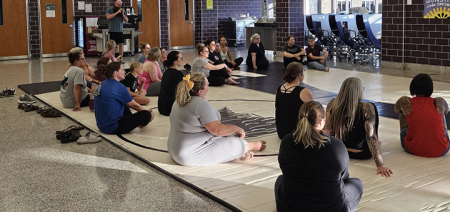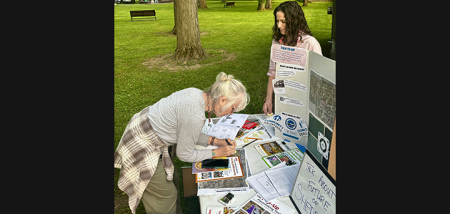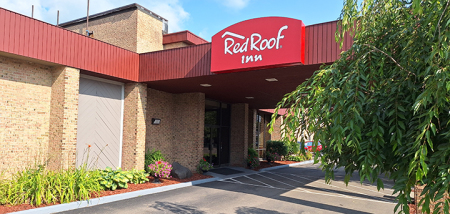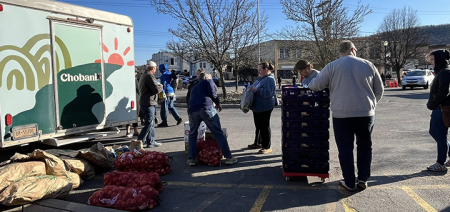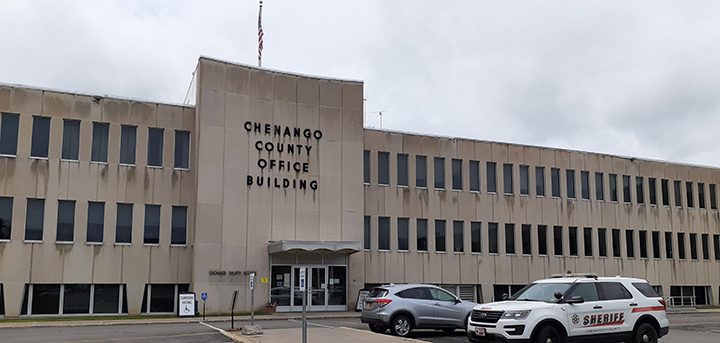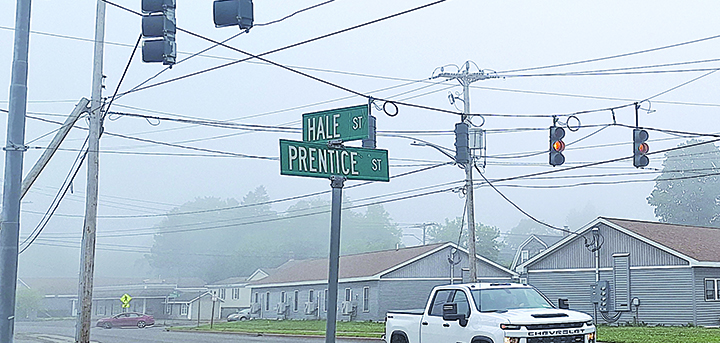A Community Conversation About Change Set For Tuesday Night
Published:
November 30th, 2015
By:
Ashley Babbitt
NORWICH – A community conversation about change with regard to the drug epidemic is set to be held at 6:30 p.m., Tuesday at the Guernsey Memorial Library.
The panelists of the event – which is sponsored by Opportunities for Chenango – include recovering addicts, family members of addicts, drug and alcohol specialists, rehab admissions director, legal, drug court and law enforcement representatives.
30-year-old Michael Galesky is a recovering addict and graduate of Drug Treatment Court. He is set to be one of the many panelists to speak on Tuesday.
“Our goal is to educate and inform on all aspects of addiction,” said Galesky. “We want to inform about services in place and potential future services.”
Jennah Shreve, also a Drug Court graduate, said she got into some trouble and was placed into the Drug Court program.
“Drug Court was a big change,” Shreve said. “What I was doing was a huge issue.” Shreve went to a treatment facility in Trumansburg for six months.
Shreve added that the issue is not only addiction, but the behaviors that accompany the disease. “A lot of people miss that,” Shreve said. “It’s what makes it not so easy to stop. It’s especially hard for families and the community to understand when you’re not going through it. They think people can make that decision to simply stop without help.”
Shreve said education for the community will be a big help, and that learning about the issue and helping with possible solutions is better than mere anger.
“Addiction is a disease, and it’s something you have to work at all the time,” said Shreve. “From my experience, in the area and in general, people don’t know why, and they don’t know what to do. Someone may hear about my past and make an automatic judgement because of that.”
Shreve added, “A lot of people think it’s just the drugs, it’s not. If you can’t change the behaviors, life doesn’t seem to get better.”
Shreve graduated Drug Court on Nov. 9, 2015. She said that in the beginning she was fighting it, and not wanting to use the support system, and that it was hard to see them as an asset. She then opened her mind and saw it as an opportunity and a resource.
Donna Wood-Craig, Training Coordinator and Moderator of the event, stressed the importance of long-term inpatient rehab for addicts.
“In the class yearbook, I would give Jennah ‘Least likely to relapse,’” said Wood-Craig.
“There is not enough funding,” said Wood-Craig. “Insurance companies don’t want to fund more than 7-10 days of treatment. You cannot change a life in seven days. These people are still broken.”
Shreve added that there are no options in Chenango County other than outpatient. “Here we can’t do intensive outpatient as there is no funding. Binghamton and Utica do, though,” Shreve said.
The Addiction Crisis Center in Binghamton (ACC) is a facility where an addict can call every hour on the hour to check for the availability of a bed.
Wood-Craig added that one treatment center she contacted had a one year waiting list.
“There’s a very narrow window to get into treatment when someone is ready for help,” said Wood-Craig. “Waiting a year is not the answer.”
Shreve said there are many things she hopes attendees of Tuesday’s event take away with them. First, she said hope. Additionally, she wants the public to know that addiction crosses all socio-economic classes, and it can happen to good people.
Wood-Craig said she is in the process of trying to set up a sober-living facility in Norwich that is privately funded. Wood-Craig added that once people get out of rehab, it is frowned upon to hang out with their old friends, and many are left homeless, jobless and friendless.
“If life doesn’t get better after you stop using, what is the incentive to stay sober?” said Wood-Craig.
“I was fortunate after being released from jail as I got two full-time jobs right away, working 80 hours per week,” said Galesky. “I didn’t allow myself the down time to want to use.”
“Just as my addiction progressed, I had to deal with the death of my best friend, then the death of my second best friend, I have a child with medical issues, my apartment had no not water or electric, tore my ACL twice. It’s part of life. Life isn’t always sunshine,” said Galesky.
“I want people to know that life will get better,” Galesky added. “There will be downtimes and hardships, but it’s important to learn to escape in a different way other than drugs.”
Galesky said he now uses sobriety as his escape.
“I find joy in going outside and feeling the cold,” Galesky said. “I used to hate the cold.”
Galesky said getting arrested is what he needed. “I knew using was making my loved ones hate me,” he said. “But I didn’t fully comprehend it. I was using drugs, I was dealing drugs. The time I spent in jail was an escape from addiction, but I never had that outlook. I was becoming the stereotypical drug addict.”
“Now,” said Galesky, “I can be a role model for my son, like my father was for me. I had a great childhood. Then, my brother passed away when I was 18, and I didn’t handle it well. I turned to drinking. I didn’t connect the dots as to what I was doing to myself. Alcohol turned to marijuana which turned to pills and then heroin, over the course of ten years. I used heroin for 2-3 years.”
When released from jail, Galesky entered Drug Court, where he said there were ten steps per week and highly intensive. “I saw it as an opportunity, not a punishment,” Galesky said.
Galesky added that Drug Court helps to make sure one is responsible for themselves, children, apartment, job training.”
“Eventually, everyone gets caught or overdoses,” Galesky said. “Justin [his friend who passed away], was trying to change without help from the legal system. It was his own life, but it didn’t work.”
Wood-Craig said “There is a lot about Norwich that is great, but one thing that isn’t, is the lack of opportunities for addicts to get help.” She said that she left the area and returned in 1990, when seven companies closed. She said without employment opportunities, more people turn to drugs.
“When you don’t have a job, finding one is your full-time job,” said Galesky.
Galesky also added, “Without addicts, there will be no dealers.”
These topics and more will be discussed at Tuesday’s event at the library which is slated to last for two hours, 6:30-8:30 p.m.
Author: Ashley Babbitt - More From This Author
Comments

